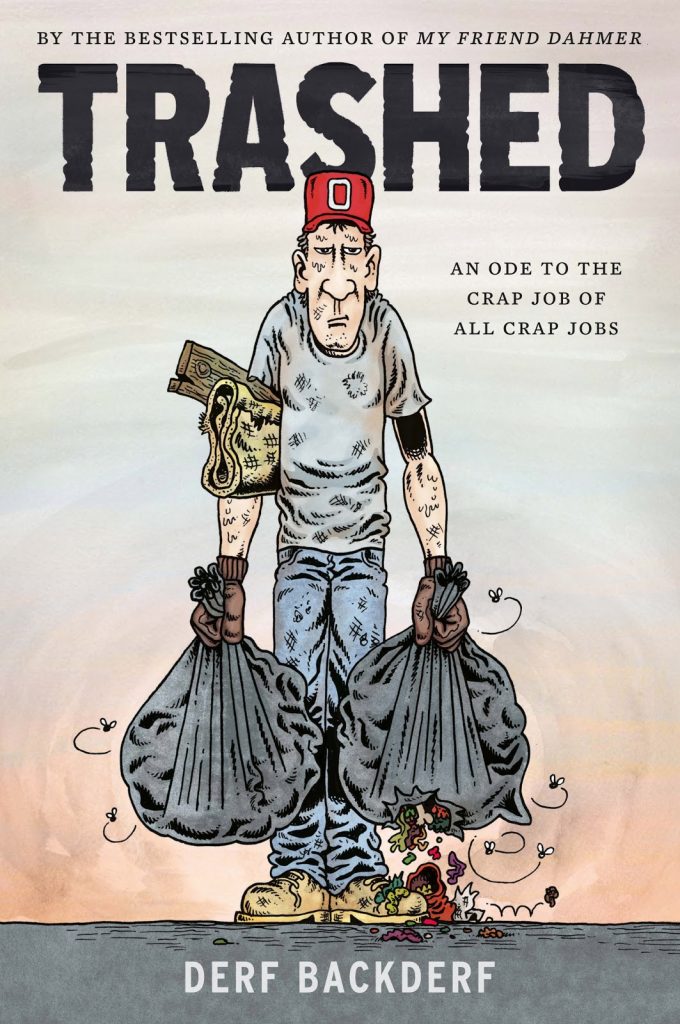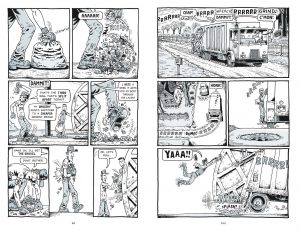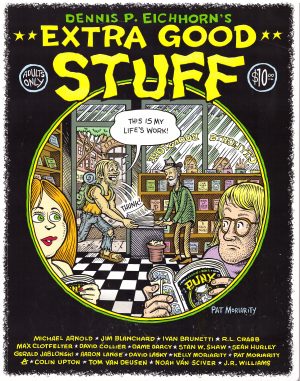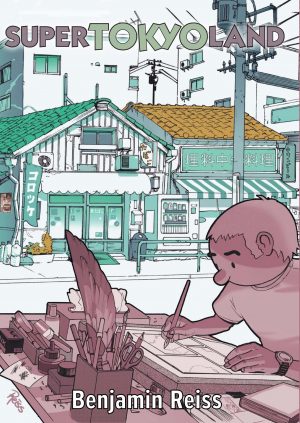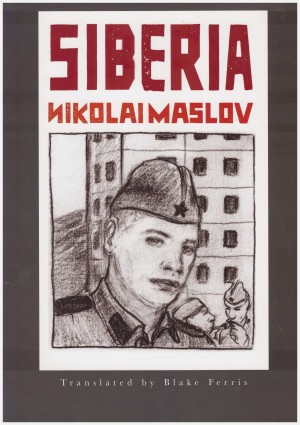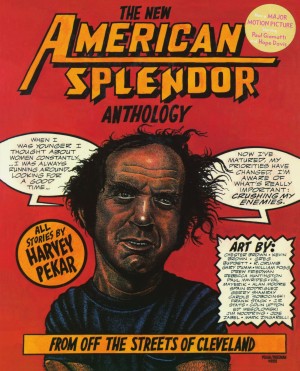Review by Frank Plowright
Portions of John Backderf’s school days are detailed in his memoir My Friend Dahmer. Presenting himself as an unfocussed student, he drifted into work as a garbage collector, and published anecdotes about that time as his first version of Trashed in 2002. Over a decade later he returned to the topic as a web comic, but decided stories built around his experiences were preferable to a direct retelling of them. For all that, the opening of this version is similar to the original, with J.B. a stand in for the young Backderf, equally inclined to kick over the trash while being nagged by his mother to find a job. From there the separation begins.
Despite the down and dirty nature of the job, Backderf’s story is relatively good natured, following Bone, J.B. and Mike on their van over four chapters split into seasons. They encounter the horrors of the garbage pile, assorted eccentrics, and fellow city employees, all the while being monitored by supervisor Wile E. He’s liable to go ballistic whether or not the garbage crew are responsible for reported damage, has no qualms about sending them out on city time to do favours for influential friends, and constantly pops up at the most awkward moments, supplying Trashed’s recurring joke.
Backderf splices the anecdotes of guys on the garbage trucks with facts about the trash we dispose of, almost all of which should be some concern, from the likely 7,300 pounds of garbage a family of four will dispose of in a year to recycling averaged across the USA barely making a dent in that. Still, in the days before city administrators considered garbage removal desirable, service solutions included pigs on the streets as they’d eat anything, or leaving it to build up outside the city walls. There are also interludes about garbage trucks, recycling plants, and other associated items. The sections on the construction of landfills is especially alarming concerning just what leaks into the American water table, never mind that methane from landfills comprises eighteen percent of man-made emissions.
As with Backderf’s other projects, the cartooning is prime underground style, black and white with blueish grey tints, packed with the detail of life, his characters resonating, his vehicles spectacular and he revels in drawing those massive piles of garbage. The writing isn’t as proficient. Fictionalising experiences prompts an expectation of there being some semblance of narrative beyond the daily grind. J.B. and Mike are only defined by their work and we learn nothing more about them other than the starting point of J.B. and his mother. Resolution to stories of the various people encountered along the collection route and the situations introduced is almost non-existent. Only the story of Marv the dog catcher has any closure, and that’s unsatisfying. So is some of the dialogue, the starting pages very heavy with unrealistic exposition. View Trashed as reportage, however, and it works just fine, observant, funny, strangely touching in places and educational.
